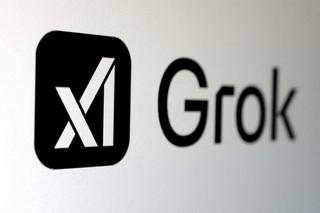In contrast to the N76.70 billion invested in the second half of 2022, manufacturers’ investments in alternative energy sources fell by 21.1% in the first half of 2023, totaling N60.47 billion.
According to The Times, it represented a 10.8% decrease from the N67.8 billion spent in the corresponding period in 2022.
These figures were released by the Manufacturers Association of Nigeria in its “Economic Review for the First Half of 2023” (January–June).
The survey that MAN performed in the manufacturing sector during the first half of 2023 is briefly summarized in this report.
The study was designed to follow changes in manufacturing sector performance indicators, looking at how they connect to more general macroeconomic and policy landscape during the survey period.
The focus manufacturing indicators include capacity utilization, production value, inventory, level of utilization of local raw materials, investment, expenditure on alternative energy sources, etc.
According to MAN, the national grid’s ability to supply industries with energy during the first half of 2023 saw a little improvement, averaging 11.3 hours per day as opposed to 10.2 hours during the same period in 2022.
In addition, the average daily availability of electricity increased by 42 minutes from the 10.6 hours seen in the latter part of 2022. In line with this, there was a little increase in the average daily number of outages, which went from 4.4 times in the first half of 2022 to 4.7 times.
In the same vein, the average number of outages per day grew slightly to 4.7 times from 4.4 times in the first half of 2022, according to the research.
“As a result, spending on alternative energy sources fell to N60.4 billion in the first half of 2023 from N76.7 billion in the second half of 2022, representing a N16.2 billion or 21.2 percent fall during that time.
Additionally, it decreased from the N67.8 billion reported in the same time of 2022 by N7.3 billion, or 10.8%.
The increase in spending on alternative energy sources was directly related to the rising cost of diesel, which had negatively impacted many manufacturing enterprises’ capacity for output.
The trend, according to local manufacturers, may result in the closure of some factories and the loss of jobs.
In the meantime, as part of their agreement with organised labour to lessen the impact of the elimination of subsidies, the Federal Government stated yesterday that they will be reducing VAT on petrol prices for the next six months.
In the upcoming weeks, it is predicted that this new development will lower fuel prices and lower manufacturers’ operating energy costs.
MAN additionally lamented that the cost of funds to manufacturers, at 24%, was clearly one of the biggest obstacles facing the nation’s manufacturing sector.
The director general of MAN, Segun Ajayi-Kadir, stated that data collected during the fieldwork for the first half of the 2023 report supported the difficulty of the high cost of getting finances.
“When compared to what was observed in the same half of 2022, the average lending rate from commercial banks to the industrial sector remained high at 24%.
“The Monetary Policy Rate’s ongoing increases have a substantial impact on the loan rates commercial banks provide to industry.”
According to the MAN DG, these changes are intended to maintain a favourable real interest rate environment, draw in foreign investment, support the local currency (the naira), and stop the inflationary spiral.
“However, firms and international investors are becoming more hesitant to commit cash, impeding economic growth and recovery expectations.”
He claimed that the combined effect of these is the resultant higher inflationary pressure, which fuels the cost of production, reducing consumers’ purchasing power and having a greater impact on the manufacturers,” Ajayi-Kadir added.









